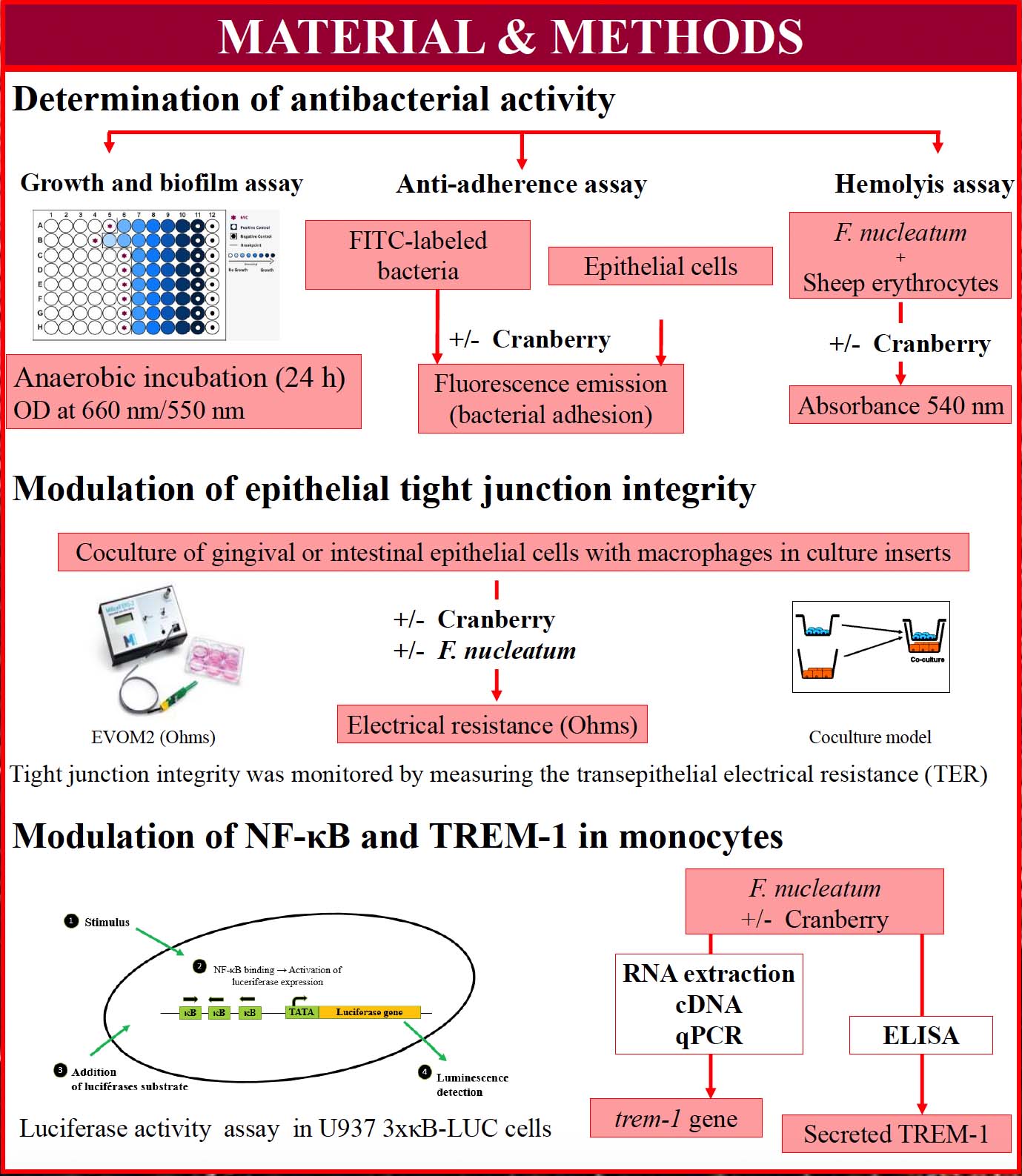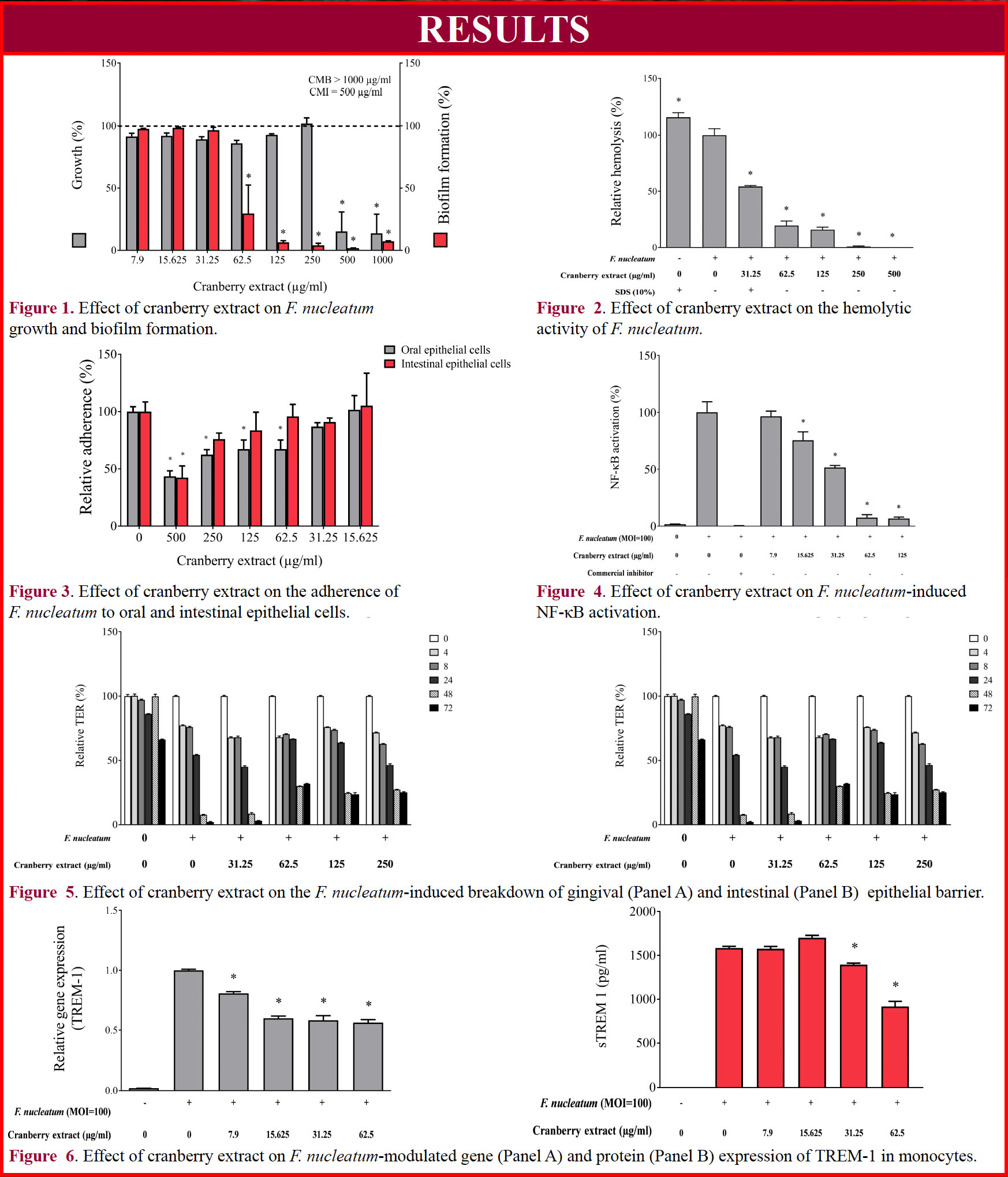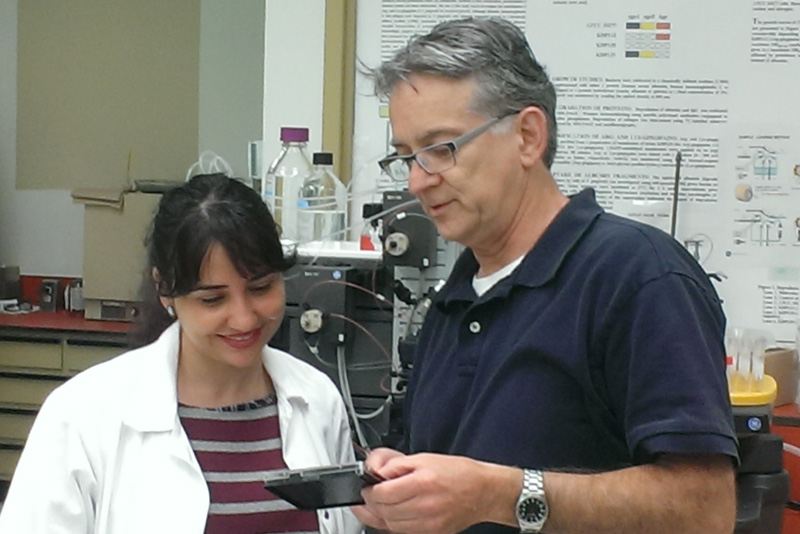A polyphenol rich cranberry extract modulates the virulence properties of Fusobacterium nucleatum
Fusobacterium nucleatum has been associated with various forms of periodontal disease and is a key bacterial species involved in physical interactions between symbiotic and dysbiotic members of the oral microflora It is also a resident of the human gastrointestinal tract and has been associated with inflammatory bowel disease as well as colorectal cancer.
The aims of this study were to investigate the effects of a cranberry extract on virulence properties of F. nucleatum and to determine its protective action on the gingival and intestinal epithelial barrier dysfunction induced by F. nucleatum. Lastly, the effect of the cranberry extract on activation of NF κB and TREM 1 in monocytes were assessed.

Introduction
Periodontal diseases are multifactorial infections that cause the destruction of the tooth supporting tissues and may lead to tooth loss
Fusobacterium nucleatum has been associated with various forms of periodontitis and is one of the main bacterial species involved in physical interactions between commensal Gram positive “early colonizers” and periodontopathogenic Gram negative “late colonizers
F. nucleatum has been recently associated with colorectal cancer and
evidence were brought that it promotes colonic tumor formation.
The epithelium acts as an interface between the external environment
and the underlying connective tissue and plays an active role in
maintaining periodontal and intestinal health.
Cranberry polyphenols may exert beneficial effects against periodontal disease through their capacity to inhibit biofilm formation
tissue destructive enzymes, and inflammatory cytokine secretion by
immune and mucosal cells.


Conclusions
- The present study brought evidence that a polyphenol rich cranberry extract exerts antibacterial activity by inhibiting F. nucleatum growth, biofilm formation and hemolytic activity
- The cranberry extract attenuates the adherence of F. nucleatum to gingival and intestinal epithelial cells
- Cranberry extract increases the barrier function of the gingival and intestinal epithelial cells and protects these cells from the deleterious effects of F. nucleatum
- Cranberry extract reduced the F. nucleatum mediated activation of the NF κB signaling pathway and attenuated the TREM 1 gene expression as well as sTREM 1 secretion
By acting on several targets, cranberry extract may represent a promising molecule for the prevention/treatment of periodontal diseases and colorectal cancer.
Acknowledgements We are grateful to Diana Food Canada Inc. (Champlain, QC) for providing the cranberry extract.
Équipe de recherche et collaborateurs
Amel Ben Lagha and Daniel Grenier
Oral Ecology Research Group, Faculty of Dentistry, Laval University, Quebec City, QC, Canada

